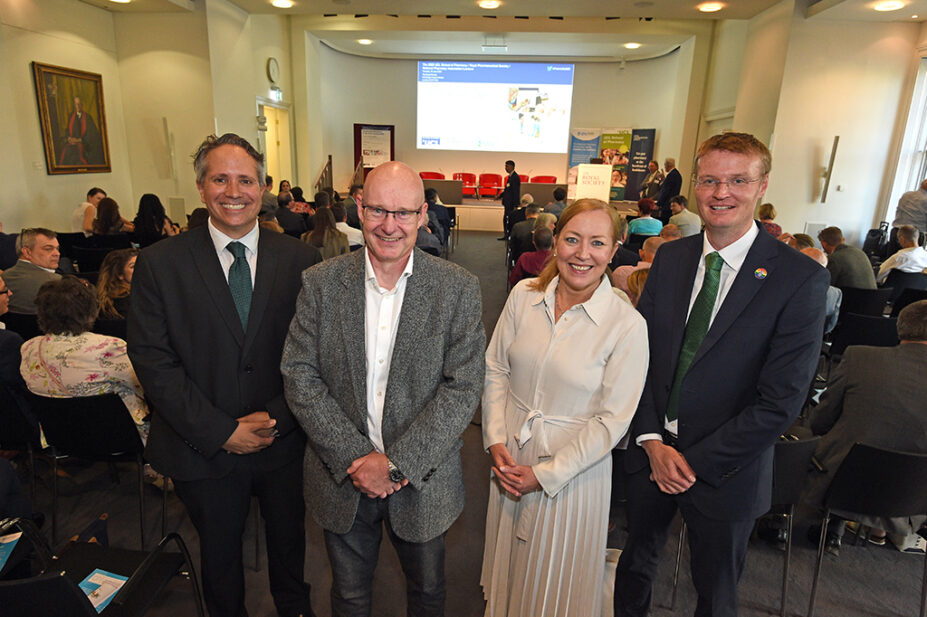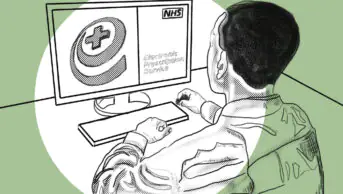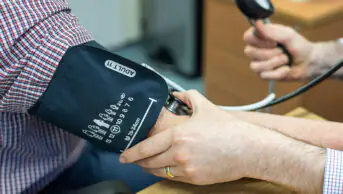
A third of pharmacies could be providing the NHS Pharmacy First Plus independent prescribing service by the end of 2024, Community Pharmacy Scotland (CPS) has said.
Speaking at a lecture at the Royal Society in London on 15 June 2023, Harry McQuillan, chief executive officer of CPS, said independent prescribing presents “an opportunity” for the future of community pharmacy as the sector “further moves towards a service-based contract”.
Pharmacists in Scotland have been able to independently prescribe through the NHS Pharmacy First Plus service since September 2020.
The service allows pharmacist independent prescribers to manage the treatment of patients with common clinical conditions that may otherwise have needed referral to another healthcare provider, including allergies and eye infections.
McQuillan said that Scotland currently has “206 active pharmacies providing NHS Pharmacy First Plus”, adding that 246 people have enrolled in independent prescribing courses since January 2022 and “by the end of 2024, I expect to have another 246 prescribers”.
“In 2023, if they all qualify and practice, we’ll be at one in four pharmacies in Scotland [offering NHS Pharmacy First Plus] and, by the end of 2024 … one in three,” he said.
A spokesperson for CPS confirmed to The Pharmaceutical Journal on 16 June 2023 that there are currently 1,256 pharmacies in Scotland, with 18% delivering NHS Pharmacy First Plus.
The independent prescribing service follows the launch of the NHS Pharmacy First service in July 2020, offering patients the opportunity to visit a pharmacist as their first port of call for minor illnesses, such as urinary tract infections, impetigo and acne.
A similar common ailments service will be launched in England by the end of 2023, as part of the government’s wider plan to improve access to primary care, which pharmacy leaders have said will make “better use of pharmacists’ clinical skills”.
The lecture, which was organised jointly by University College London School of Pharmacy, the Royal Pharmaceutical Society (RPS) and National Pharmacy Association (NPA), considered the role of community pharmacy in the 21st century NHS.
Commenting after the lecture, McQuillan said: “The main take-away message from tonight’s lecture is for pharmacy professionals to really challenge themselves about whether they are focused on ‘accuracy of supply’ or ‘safety of supply’.
“For our community pharmacists, it must be about safety, including prescribing and ensuring patients and citizens get the maximum benefit from prescribed medicines. To deliver this, we need to invest in our teams, harness technology and be willing to take the next step in a more clinical future.”
Also commenting on the lecture, James Davies, director for England at the RPS, said community pharmacy “is moving away from a focus on the supply of medications towards providing care through services”.
“To make this happen, we will need to step out of existing pharmacy structures and work across the pharmacy professions … something that has arguably been achieved faster in Scotland and Wales than in England,” he said.
Nick Kaye, chair of the NPA, said: “It’s time for community pharmacists to step forward with greater confidence into all areas of clinical practice involving medicines use. The extent to which we are successful in delivering NHS prescribing services will be [a] deciding factor in the future of our sector across the UK.”
In May 2023, NHS England announced that all 42 integrated health boards in England submitted bids to participate in a national pharmacy independent prescribing service pilot.
The pilot, which was revealed by The Pharmaceutical Journal in August 2022, is expected to start in 2023.


